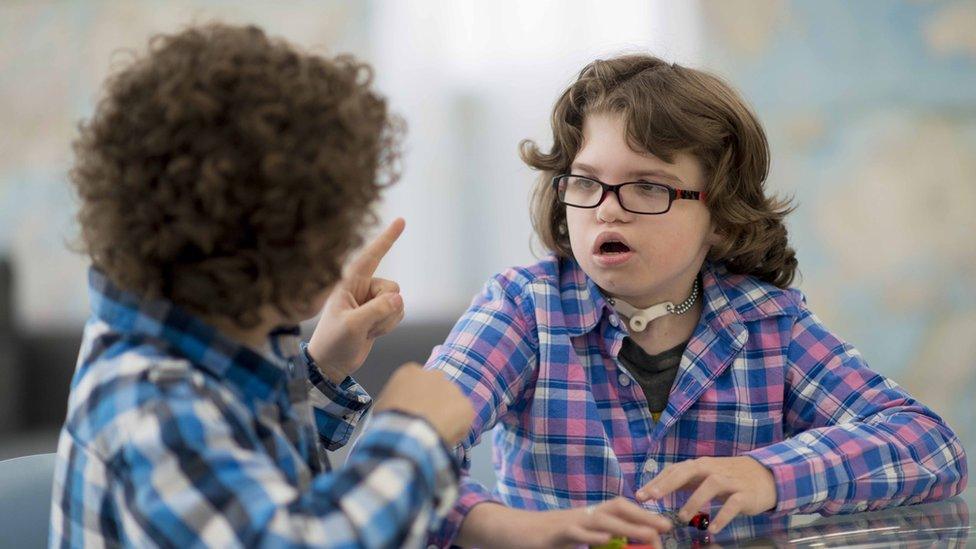BSL: Parents of deaf children in Wales urge free signing lessons
- Published
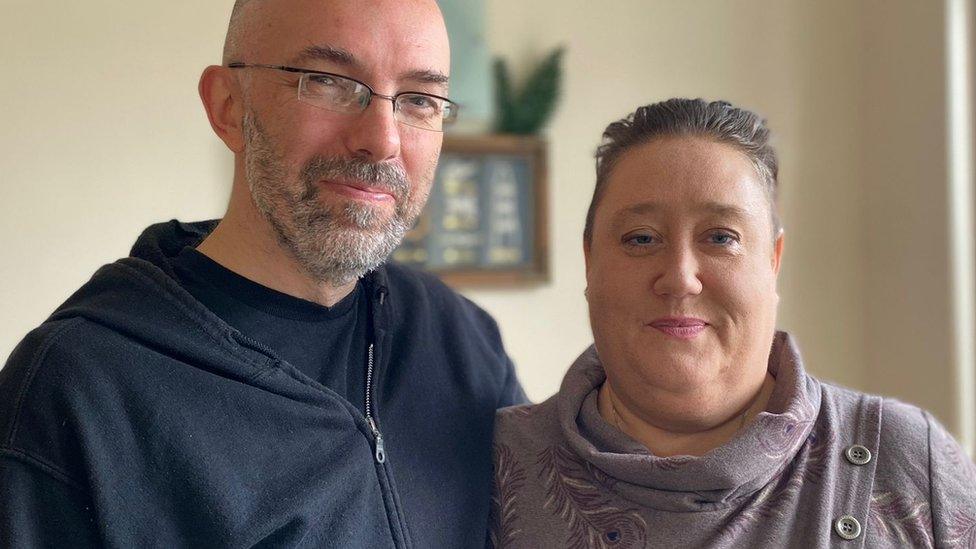
"I was anxious and it was a really difficult time," says Amanda Webb, with her husband Paul, after their son Hayden was diagnosed as deaf
"It's heart-breaking, because all you want to do is talk to your child."
For mother-of-two Amanda Webb, trying to communicate with her deaf son has been a challenging journey.
She is one of more than 2,600 people who has signed a petition calling for free British Sign Language (BSL) lessons for parents of deaf children in Wales.
It is estimated there are at least 2,329 deaf children in Wales, with 90% of them born to hearing parents.
The Welsh government said BSL provision for adults was based on demand across Wales, and while it provides funding to further education colleges, the colleges decide what curriculum they offer and learner fees.
Hayden Webb, 11, was diagnosed as deaf when he was a newborn.
It came as a huge shock for his parents Amanda and Paul.
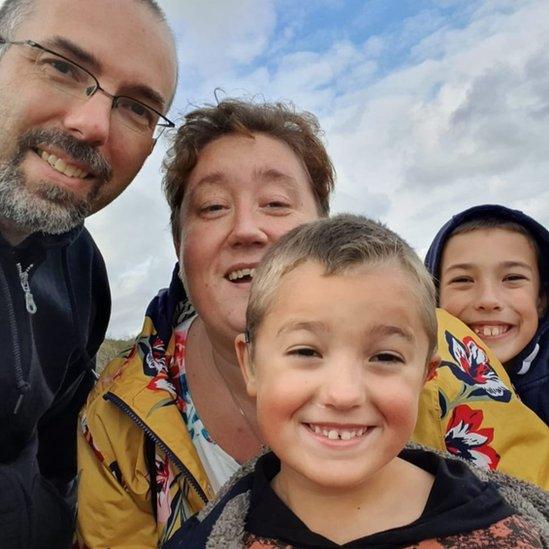
Paul and Amanda Webb said they felt like they were on their own after Hayden's diagnosis
"It was almost like being in a lift and the lift dropping. Because what do I do now?" said Amanda, from Rhoose, Vale of Glamorgan.
The couple said they "weren't given any actual advice" and felt alone.
"I was anxious and it was a really difficult time," Amanda added.
She recalled trawling the internet for information, an overwhelming experience heightened by Hayden's "meltdowns".
"If he can't get across to you the simplest things like I want to go to the toilet or I need a drink or something like that, you feel guilty because you don't understand him. And he's thinking, why don't you understand what I want to say to you?"
Amanda decided to begin level one BSL, which helped her to communicate with Hayden more.
She got "three-quarters of the way through" before "family life took over".
Later, when revisiting learning more BSL, she said the prices were unaffordable.
She said if levels one and two were free "you would have more families who would be able to communicate with each other".
She is now part of South East Wales Deaf Children's Society, a parent-led group which means she feels more supported.
"You have to find your own community within the community," she said.
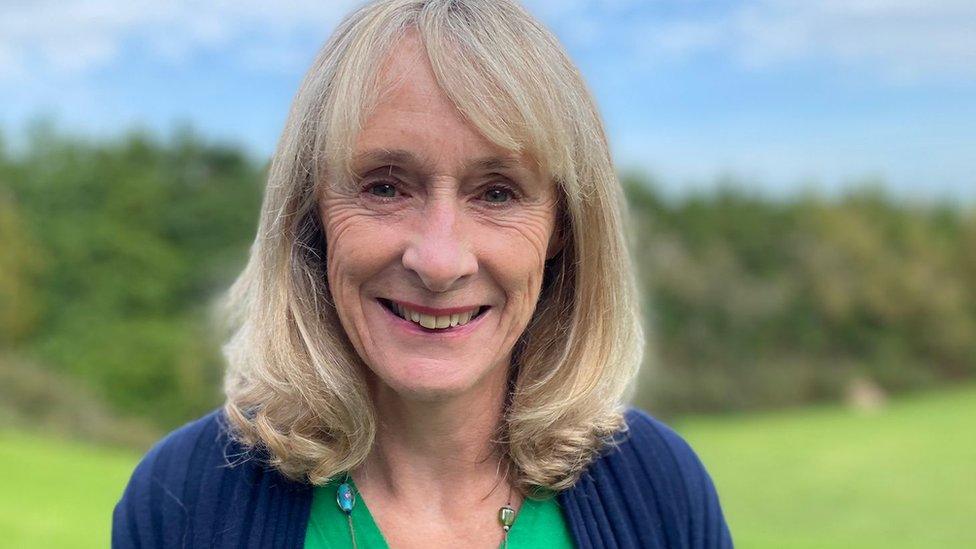
"Things really haven't changed in 30 years, and it's quite shocking," says Catherine Davies
Catherine Davies went through a similar experience when she adopted her deaf daughter 31 years ago, and has set up a petition calling for free BSL for parents.
"Things really haven't changed in 30 years, and it's quite shocking," said the retired teacher from Cardiff.
She remembers being told not to "sign to her child" as it would stop her from "developing language and speech".
Despite the advice she received at the time, Catherine took it upon herself to learn BSL and eventually specialised as a teacher of the deaf.
"All the evidence points to the fact that we all need language as soon as we're born. Whether it's Welsh or French or English and why is that different for a deaf child?" she said.
Catherine said deafness was "low incidence" and a hidden disability, and therefore"not a priority" for Welsh government.
In response, the Welsh government said: "We have set up the Disability Rights Taskforce to identify the issues and barriers that affect the lives of many disabled people."
Catherine said: "What we're seeing later on is that because deaf children aren't getting language early, there are huge gaps in their academic performance between their hearing peers and themselves.
"You need to be able to be signposted to BSL classes, which just are not there, and if they are there, you've got to spend thousands of pounds learning to communicate with your child, which is awful.
"I believe it's a form of discrimination. It is basically saying that you cannot learn the only accessible language that your child can access."
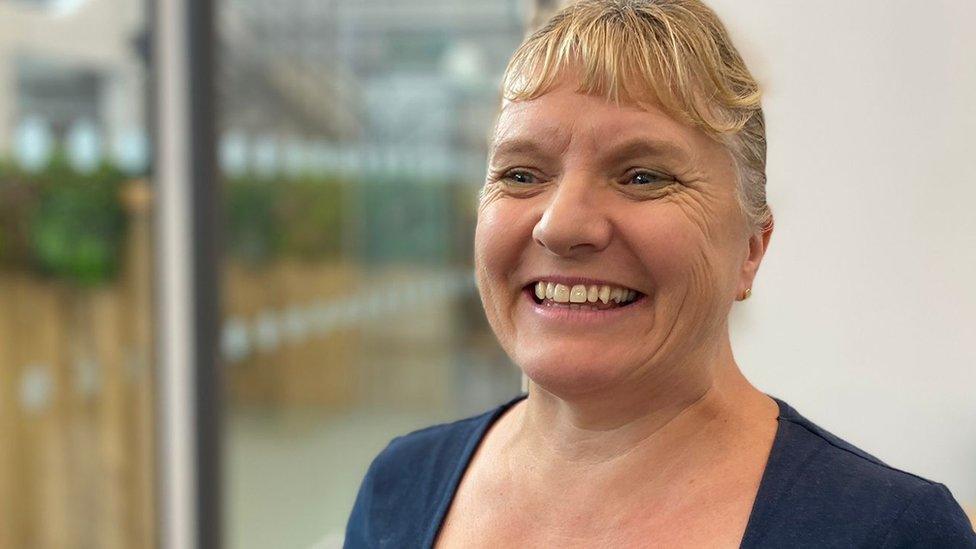
Dr Julia Terry describes depriving parents of free BSL as "massive discrimination"
The impact of lack of language and communication between deaf children and their parents has been a focus of Dr Julia Terry's research.
"We know that the impact on deaf children's mental health is considerable," said the Swansea University professor.
"For a deaf child who cannot communicate in their own family, they will often be left out and quite isolated. They also may experience a lot of loneliness."
Dr Terry, who has 30 years' experience as a mental health nurse, backs calls for BSL to be free to parents of deaf children.
One change that may help with the numbers of people who learn BSL is the introduction of the language to the new curriculum in Wales.
Deaf businesswoman Sarah Lawrence from Caerphilly played a part in making that a reality.
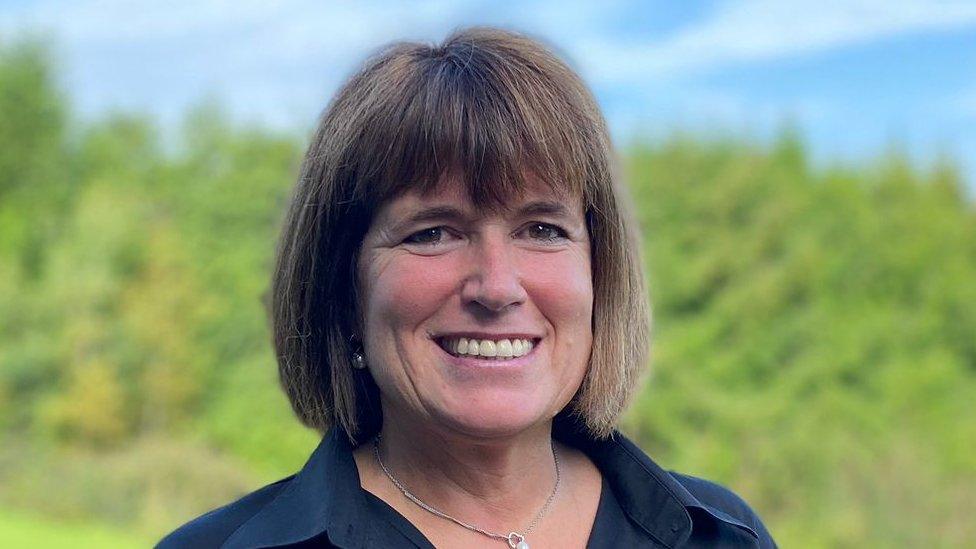
Sarah Lawrence says BSL on the Welsh curriculum will benefit everyone
"I feel it will benefit everyone in two ways," she said.
"One, deaf education, their confidence and their identity will improve. The second is that in society, children who have future work as a doctor, police officer, nurse - they will have BSL as a usable language. So later in life, deaf people will be able to access more services because people can use sign language with them."
Sarah said she believed the financial emphasis on the "medical route" of treating deafness such as "cochlear implants, hearing aids, speech therapy", was unfair.
According to the Welsh government, BSL provision for adults is based on demand across Wales.
It said further education colleges were autonomous bodies which set their curriculum on the needs of local communities.

A SPECIAL SCHOOL: Life in Britain’s biggest special school
FANCY A LAUGH?: Join Rhod Gilbert as he tries out different jobs across Wales

- Published25 June 2023
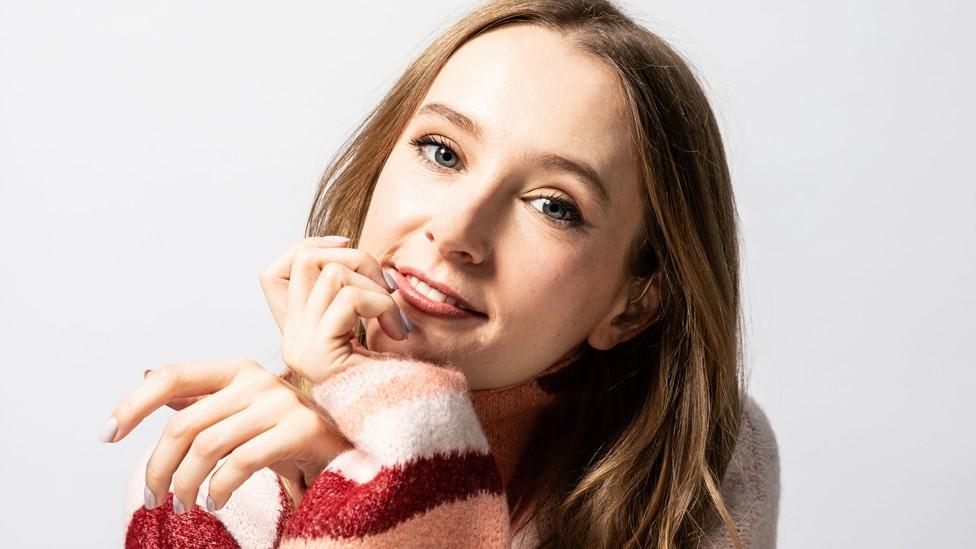
- Published5 October 2018
